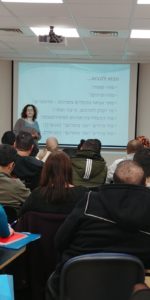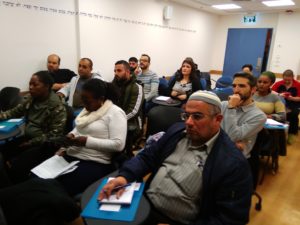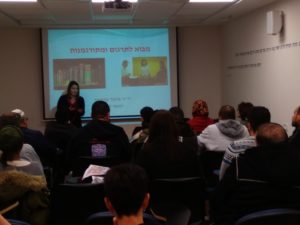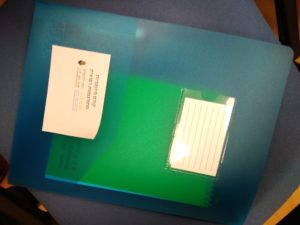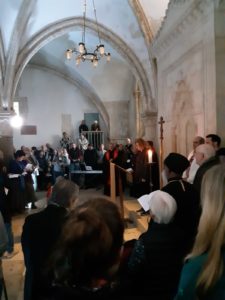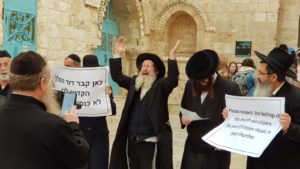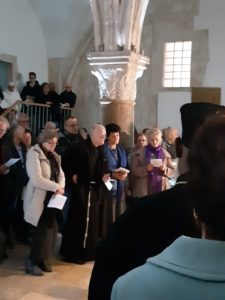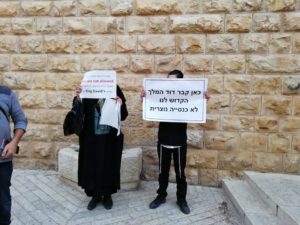The Little Prince – For a Clean City Platform
We’ve described here and here some of our latest efforts to make Jerusalem a clean city, thanks to the efforts of the Little Prince – Cleaning Up Jerusalem Together initiative.
Last Friday, on February 22, 2019, Shlomi Buchnik published this opinion piece on the MyNet web site, which is associated with the popular Ynet web site. You can read the Hebrew here. As we can read, the buzz of the Little Prince is deep into this new municipal administration! Hope the buzz will turn into actual outcomes in the streets soon!
Here’s an English translation of the piece:
Three Months after Leon was elected, I feel Positive Winds of Change from Safra Square
The truth is, I did not believe any of the promises of Moshe Leon’s election. I must admit there is something in his clean vision that even bored me. But perhaps after Barkat’s dramatic roller coaster, this silence is blessed.
I remind you of my sins today: I did not believe any of the promises of the municipal elections that accompanied us in the past year, and especially not those of Moshe Leon. I read them with a mocking smile. After every promise I hastened to explain why I did not believe them. I could not believe it when he talked about free parking, and certainly not the one that promised to improve cleanliness. I did not think he would get rid of garbage in the streets, and it seemed absurd to me that he would evacuate garbage daily in areas where people go out.
I must admit that there is something in Leon’s clean vision that even bored me. How do you compare the excitement of Formula 1 or the Marathon to thrill of an empty trash can? In my shallow eyes, I preferred the approach of his predecessor, Nir Barkat, who sometimes did not seem interested in the daily troubles of the Jerusalem resident, but at least he gave us the feeling that we live in a European capital.
The problem is that, like Cinderella, at midnight (and perhaps a little before) we returned to reality. Barkat did invest in a revolutionary program to clean up the city, but the Machane Yehuda Shuk remains dirty. The ultra-Orthodox neighborhoods were filthy, and the garbage activists were often forced to replace the Jerusalem Municipality. When a Jerusalemite wanted to solve the local garbage problem, he preferred to turn to the Little Prince and Jerusalem of Garbage, groups that the residents established to solve the problem.
This week I sat down to talk to an old friend who has been an activist for clean streets even longer. In recent years, the conversations with him were stinking, literally and figuratively. They dealt with the sorry state of municipal garbage, which bothered him more than the access highways to the city or the housing problem. “I live in an ultra-Orthodox neighborhood and feel that I live in a perpetual garbage dump,” he always said.
This week my friend smiled when he talked about the garbage situation in the streets. This hasn’t happened in a decade. He explained that since Moshe Leon was elected, the response to sanitation complaints has changed. He has been invited to meetings that deal with the subject in local community centers, and even takes care of dog feces. “Do not be mistaken, there are still quite a few things to do, but I feel that if we continue like this, we’re moving in the right direction,” he explained to me.
City sanitation workers speak enthusiastically about the changing atmosphere. They tell of direction from above that cleanliness is more important than anything. Some explain that Nir Barkat began this last year, but everyone is aware that Leon accepts no compromises. “In the past month, we have been cleaning areas that we have not been in for years. We’ve found trash that’s ten years old,” said one of them.
Leon’s hundred days of grace ended this week. I promised myself that I would not criticize him during this time. I was convinced that at the end of that time I would stand with a bag and criticize him for everything he’s done. Like many of the city’s residents, I was afraid as well. Less because of an increasing religiosity of the city and the alliance with the ultra-Orthodox, and more because of fears of ethical practices.
Today, three months after he was elected, I can say that I feel positive winds of change from Safra Square, especially in the area of cleanliness. There are no strikes that threaten the Finance Minister, no struggles with the heads of community centers, and even the mini-drama in the Shuk ended long before it was exciting.
Moshe Leon still isn’t a visionary. He has no dreams that will excite the Jerusalemites. It’s also clear to me that three months is too little time to completely believe in him, and I promise to be there to make sure he does not fall and does not tire of keeping his morals. But perhaps after the dramatic roller coaster provided by Barkat, this silence is blessed. And perhaps this is our opportunity to give a first and clean opportunity to Moshe Leon.
Many thanks to the Rayne Foundation for their support of the Little Prince, as well as to the Jerusalem Foundation, for their support in developing activism in Jerusalem.

